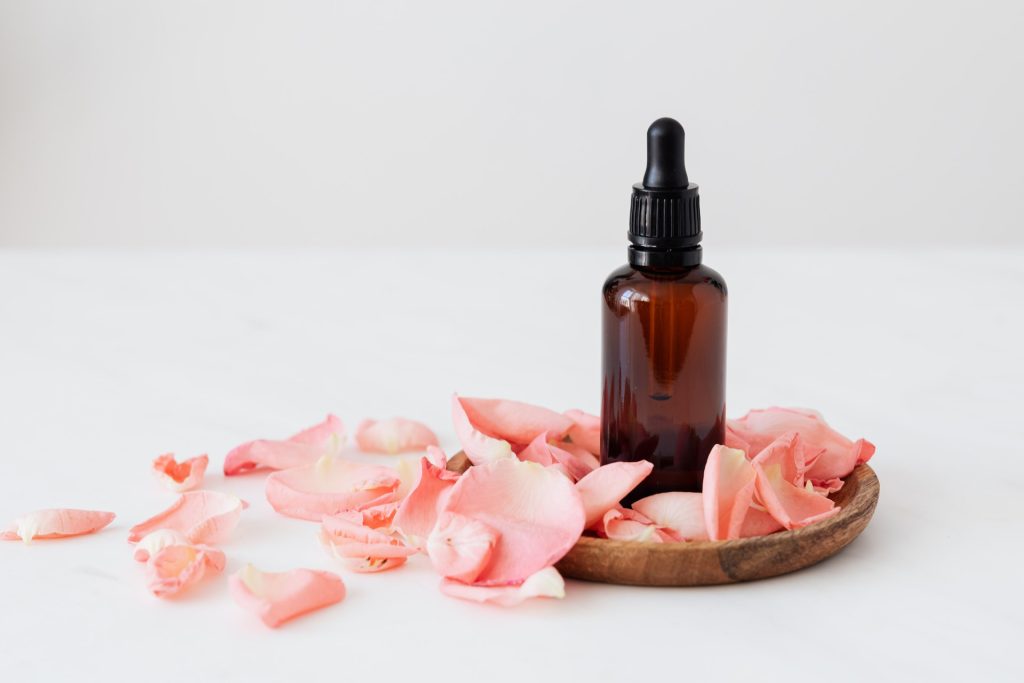Discover the truth about hair oils and their impact on fine hair.
Can Hair Oils Weigh Down Fine Hair or Make It Look Greasy?
Have you ever wondered if hair oils are the secret to luscious locks or just a recipe for disaster? If you have fine hair, you might be especially cautious about using oils. After all, you don’t want your hair to go from fabulous to flat in a matter of seconds. But fear not, dear reader, because we’re here to dive into the depths of hair oils and uncover the truth about their effects on your delicate tresses.
Understanding Hair Oils and Their Effects
What are Hair Oils?

Hair oils are like the superheroes of the hair care world. They are specially formulated concoctions that contain a blend of essential oils and other magical ingredients. These oils come in various types, such as argan, coconut, and jojoba oil, each with its own unique set of benefits.
Argan oil, known as “liquid gold,” is rich in antioxidants and vitamin E, making it ideal for nourishing dry and damaged hair. Coconut oil, on the other hand, is highly moisturizing and can help reduce protein loss, making it great for strengthening and preventing breakage. Jojoba oil, which mimics the natural oils produced by our scalp, can regulate oil production and promote a healthy scalp.
With such a wide variety of hair oils available, there is something for everyone, regardless of hair type or concern.
How Do Hair Oils Work?
When you apply hair oil to your strands, it works its magic by penetrating the hair shaft and moisturizing it from within. This adds much-needed hydration and nourishment, leaving your hair looking shiny and healthy.
But the benefits of hair oils go beyond just hydration. They can also help seal the hair cuticle, preventing moisture loss and reducing frizz. Additionally, some hair oils have heat-protective properties, forming a barrier between your hair and hot styling tools, minimizing damage.
Furthermore, hair oils can provide a soothing and calming effect on the scalp. Massaging the oil into the scalp can improve blood circulation, promote hair growth, and alleviate dryness and itchiness.
But what about fine hair? Does it play well with hair oils, or do they have a tumultuous relationship? Let’s find out!
Contrary to popular belief, hair oils can actually benefit fine hair. However, it’s important to choose the right oil and use it in moderation. Lightweight oils like jojoba oil or grapeseed oil can provide the necessary moisture without weighing down the hair.
For those with fine hair, applying hair oil to the ends rather than the roots can help avoid any potential greasiness. Additionally, using a smaller amount and evenly distributing it through the hair can prevent any heavy or oily appearance.
When used correctly, hair oils can give fine hair a boost of shine, hydration, and manageability, without sacrificing volume.
So, whether you have thick, coarse hair or fine, delicate strands, incorporating a hair oil into your hair care routine can work wonders for your locks.
The Relationship Between Hair Oils and Fine Hair
The Science Behind Hair Oils and Fine Hair
Contrary to popular belief, hair oils can actually be beneficial for fine hair. Their lightweight formulas are designed to moisturize without weighing your strands down. In fact, the right hair oil can help add body and volume to your hair, giving it the oomph it so desperately craves.
When it comes to fine hair, the struggle is real. It often lacks the natural oils that help keep hair healthy and shiny. This can lead to dryness, frizz, and a lack of volume. Hair oils can help combat these issues by providing the nourishment and hydration that fine hair needs. The molecules in hair oils are small enough to penetrate the hair shaft, delivering nutrients directly to the strands. This can help strengthen the hair and improve its overall health.
But how exactly do hair oils add body and volume to fine hair? Well, it’s all about the way they interact with the hair shaft. Hair oils have a unique ability to coat the hair, creating a protective barrier that helps to seal in moisture and prevent damage. This can make the hair appear thicker and fuller, giving it a much-needed boost of volume.
Common Misconceptions About Hair Oils and Fine Hair
There are a few misconceptions floating around about hair oils and their effects on fine hair. One of the biggest myths is that oils will make your hair look greasy. But fear not, my friend! With the right application and a little know-how, you can avoid any oily mishaps and rock glorious, non-greasy locks.
First and foremost, it’s important to choose the right hair oil for your fine hair. Look for lightweight oils that are specifically formulated for fine hair, as these are less likely to weigh your strands down or leave them looking greasy. Avoid heavy oils like coconut oil, which can be too rich for fine hair.
Another key factor in avoiding greasy hair is proper application. Less is more when it comes to hair oils, especially for fine hair. Start with a small amount and gradually add more if needed. Focus on applying the oil to the mid-lengths and ends of your hair, avoiding the roots where oil tends to accumulate more easily.
Now that we’ve busted those myths, let’s address the potential risks of using hair oils on fine hair.
While hair oils can be beneficial for fine hair, it’s important to use them in moderation. Overuse of hair oils can lead to product buildup, which can weigh the hair down and make it appear greasy. To prevent this, it’s recommended to use hair oils sparingly, and to incorporate regular clarifying treatments into your hair care routine to remove any buildup.
Additionally, some hair oils may contain ingredients that can irritate the scalp or cause allergic reactions. It’s always a good idea to patch test a new hair oil before applying it to your entire head to ensure that you don’t have any adverse reactions.
Overall, when used correctly, hair oils can be a game-changer for fine hair. They can help nourish, hydrate, and add volume to your locks, giving you the luscious, full-bodied hair you’ve always dreamed of. So don’t be afraid to give hair oils a try and see the amazing benefits they can offer for your fine hair!
Potential Risks of Using Hair Oils on Fine Hair
Can Hair Oils Weigh Down Fine Hair?

It’s true that some hair oils can weigh down fine hair if used incorrectly. Fine hair tends to be more delicate and prone to being weighed down by heavy products. However, fear not! By following a few simple tips and tricks, you can avoid any heavy hair catastrophes and enjoy the benefits of using hair oils.
Firstly, it’s important to choose a hair oil that is specifically formulated for fine hair. Look for lightweight oils that won’t leave your hair feeling heavy or greasy. These oils are designed to provide the necessary moisture without weighing down your delicate strands.
Additionally, when applying hair oil to fine hair, less is more. Start with a small amount and gradually increase if needed. Focus the application on the mid-lengths and ends of your hair, avoiding the roots where oil can easily build up and weigh down your hair. By applying the oil sparingly and strategically, you can enjoy the benefits without compromising the volume and bounce of your fine hair.
Lastly, consider using hair oils as a pre-shampoo treatment. Apply a small amount of oil to your hair before washing, allowing it to penetrate and nourish your strands. This technique can help prevent the oil from lingering on your hair and causing it to appear weighed down.
So don’t be afraid to embrace the oil and give your fine hair the love it deserves! With the right choice of oil and proper application techniques, you can enjoy the benefits of hair oils without sacrificing volume and bounce.
Can Hair Oils Make Fine Hair Look Greasy?
Another concern when using hair oils on fine hair is the dreaded greasy look. Nobody wants to walk around with hair that looks like an oil slick! However, fear not, my friend. With the right hair oil and proper application techniques, you can achieve the perfect balance of moisture without the greasy side effects.
When selecting a hair oil for fine hair, opt for those that are labeled as lightweight or non-greasy. These oils are specifically formulated to provide moisture without leaving a heavy residue on your hair.
Proper application is key to avoiding a greasy appearance. Start by applying a small amount of oil to your fingertips and then gently work it through the mid-lengths and ends of your hair. Avoid applying the oil directly to the roots, as this can contribute to a greasy look. By focusing on the drier areas of your hair, you can nourish and hydrate without overwhelming your fine strands.
Additionally, consider using hair oils as a leave-in treatment. After applying the oil, leave it in your hair without rinsing. This allows the oil to gradually absorb into your strands, providing moisture and shine without the risk of looking greasy.
Now that we’ve tackled the potential risks, let’s move on to some handy tips to help you make the most out of hair oils on fine hair.
Remember, finding the right hair oil and using it correctly can make all the difference. Don’t be discouraged from using hair oils on your fine hair. With the right choices and techniques, you can achieve beautiful, nourished locks without any greasy or weighed-down effects.
Tips for Using Hair Oils on Fine Hair
Choosing the Right Hair Oil for Fine Hair
The key to finding the perfect hair oil for your fine locks is selecting one that is lightweight and non-greasy. Look for oils that are specifically formulated for fine hair, as they are designed to provide the right amount of moisture without weighing it down. Experimentation may be necessary, but trust us, it’s worth it!
Proper Application of Hair Oils on Fine Hair
When it comes to applying hair oils on fine hair, less is more. Start with a small amount and work it through your damp or dry strands, focusing on the ends. Avoid applying the oil to your roots, as this can contribute to a greasy appearance. Remember to always follow the instructions on the bottle, and you’ll be a hair oil pro in no time!
Now, for those of you who prefer to steer clear of hair oils altogether, we’ve got some alternatives that might just spark your interest.
Alternatives to Hair Oils for Fine Hair
Other Products for Fine Hair Care
If hair oils aren’t your cup of tea, fear not! There are plenty of other products out there specifically designed for fine hair. From volumizing sprays to texturizing mousses, these alternatives can help you achieve the desired results without the oiliness.
Natural Alternatives to Hair Oils
If you’re more of a natural beauty enthusiast, fret not! Mother Nature has got you covered. There are plenty of natural alternatives to hair oils that can provide the moisture and nourishment your fine strands crave. From aloe vera gel to grapeseed oil, these options are sure to leave your hair looking fabulous and feeling healthy.
At the end of the day, whether or not hair oils weigh down fine hair or make it look greasy depends on various factors, such as the oil itself and how it’s used. With a little experimentation and the right techniques, you can find the perfect hair oil for your luscious locks. So go forth, dear reader, and embrace the world of hair oils with confidence!





